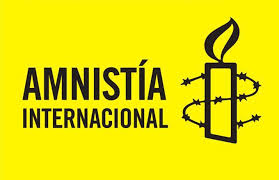Amnesty International hopes that the capture of Bernardo Alfonso Garzón Garzón – who has the right to be presumed innocent until and unless proved guilty after a fair trial – will now spur on criminal investigations into human rights violations committed by COICI and also lead to the investigation not just of low-ranking officers but also senior commanders.
Amnesty International
Public Statement
AI Index: AMR 23/004/2014
31 January 2014
A former army sergeant was arrested yesterday for his alleged part in dozens of enforced disappearances and extrajudicial killings, including several emblematic cases of human rights violations.
Bernardo Alfonso Garzón Garzón, an ex intelligence agent of the Operational Intelligence and Counter-intelligence Command (Comando Operativo de Inteligencia y Contrainteligencia, COICI) of the army’s Charry Solano Battalion, is implicated in over 30 cases of enforced disappearances and extrajudicial executions carried out in Bogotá between 1984 and 1990.
These cases include the enforced disappearances of Irma Franco and 11 others during the 1985 storming of the Palace of Justice by the security forces during the M-19 guerrilla group siege, and the enforced disappearance, torture and killing of Nydia Erika Bautista in 1987.
Amnesty International hopes that the capture of Bernardo Alfonso Garzón Garzón – who has the right to be presumed innocent until and unless proved guilty after a fair trial – will now spur on criminal investigations into human rights violations committed by COICI and also lead to the investigation not just of low-ranking officers but also senior commanders.
Bernardo Alfonso Garzón Garzón’s testimony to the Office of the Procurator General in 1991 and to the Office of the Attorney General in 1994 played an important part in securing convictions in several key human rights investigations, including the Palace of Justice case. His testimony was also crucial in ensuring the remains of Nydia Erika Bautista were located. But most of the cases in which he is suspected of criminal responsibility have not advanced.
Bernardo Alfonso Garzón Garzón has until now only been charged in relation to the enforced disappearance and killing of Antonio Hernández Niño and for the kidnapping of Guillermo Marín. Antonio Hernández Niño was taken from a bus on 8 April 1986. His body was found on a rubbish tip on 11 April 1986 by police who also found Guillermo Marín, a member of the M-19 guerrilla group who had been shot and left for dead beside Antonio Hernández.
There are serious concerns over the safety of some of the witnesses in the criminal investigations implicating Bernardo Alfonso Garzón Garzón. Amnesty International calls on the Colombian authorities to guarantee the safety of these witnesses and ensure that any physical protection measures are in strict accordance with the wishes of the witnesses.
Background information
Impunity continues to be a hallmark of Colombia’s 50-year-old internal armed conflict, and is one of the reasons why hostilities persist. Very few of those suspected of criminal responsibility for human rights and humanitarian law abuses committed during the course of the ongoing conflict have ever been brought to trial.
The Palace of Justice is one of Colombia’s most emblematic cases of human rights violations. Over 100 people died in the assault, including 11 Supreme Court judges. The body of only one of the 12 victims of enforced disappearance in this case, Irma Franco, has ever been found. Only two senior officers, General Jesús Armando Arias Cabrales and General Luis Alfonso Plazas Vega, have ever been convicted for their participation in the enforced disappearances and in other human rights violations committed by the security forces during the assault.
Nydia Erika Bautista de Arellana, a student activist and member of the guerrilla organization 19 April Movement (Movimiento 19 de Abril, M-19), was kidnapped on 30 August 1987 by undercover operatives of the army in Bogotá. The criminal investigations revealed that she had been held for two days and then taken to the Quebradablanca area of the municipality of Guayabetal, Cundinamarca Department, where she was tied up and killed with a single shot to the head. She had been tortured and was subjected to sexual violence.
On 26 July 1990, the authorities exhumed a body which had been located on 12 September 1987 in Guayabetal. The remains were confirmed as those of Nydia Erika Bautista. Bernardo Alfonso Garzón Garzón’s testimony led to the location of the body and to the identification of those who planned and carried out her enforced disappearance, torture and killing, including the then Commander of the army’s 20th Brigade, Colonel Álvaro Velandia Hurtado.
In 1995, General Álvaro Velandia Hurtado and another member of the armed forces were dismissed from the armed forces after the Office of the Procurator General found them responsible for the enforced disappearance and killing of Nydia Erika Bautista. However, on 22 April 2013, a judicial ruling from the State Council (Consejo de Estado) overturned the order of dismissal. The ruling ordered that General Velandia should be restored to his rank and position in the army. The State Council ordered his reinstatement despite the fact that the ruling did not question the Office of the Procurator General’s substantive findings of responsibility in the enforced disappearance and killing of Nydia Erika Bautista.
The criminal investigations into General Velandia and four other members of the armed forces for their role in this case have made virtually no progress.
END
Also available on our website: http://amnesty.org/en/library/info/AMR23/004/2014/en
Colombia Research Team / Equipo de Investigación sobre Colombia
Amnesty International
1 Easton Street
London WC1X 0DW
United Kingdom
Tel: +44 (0)20 7413 5500
Fax: +44 (0) 20 7956 1157

